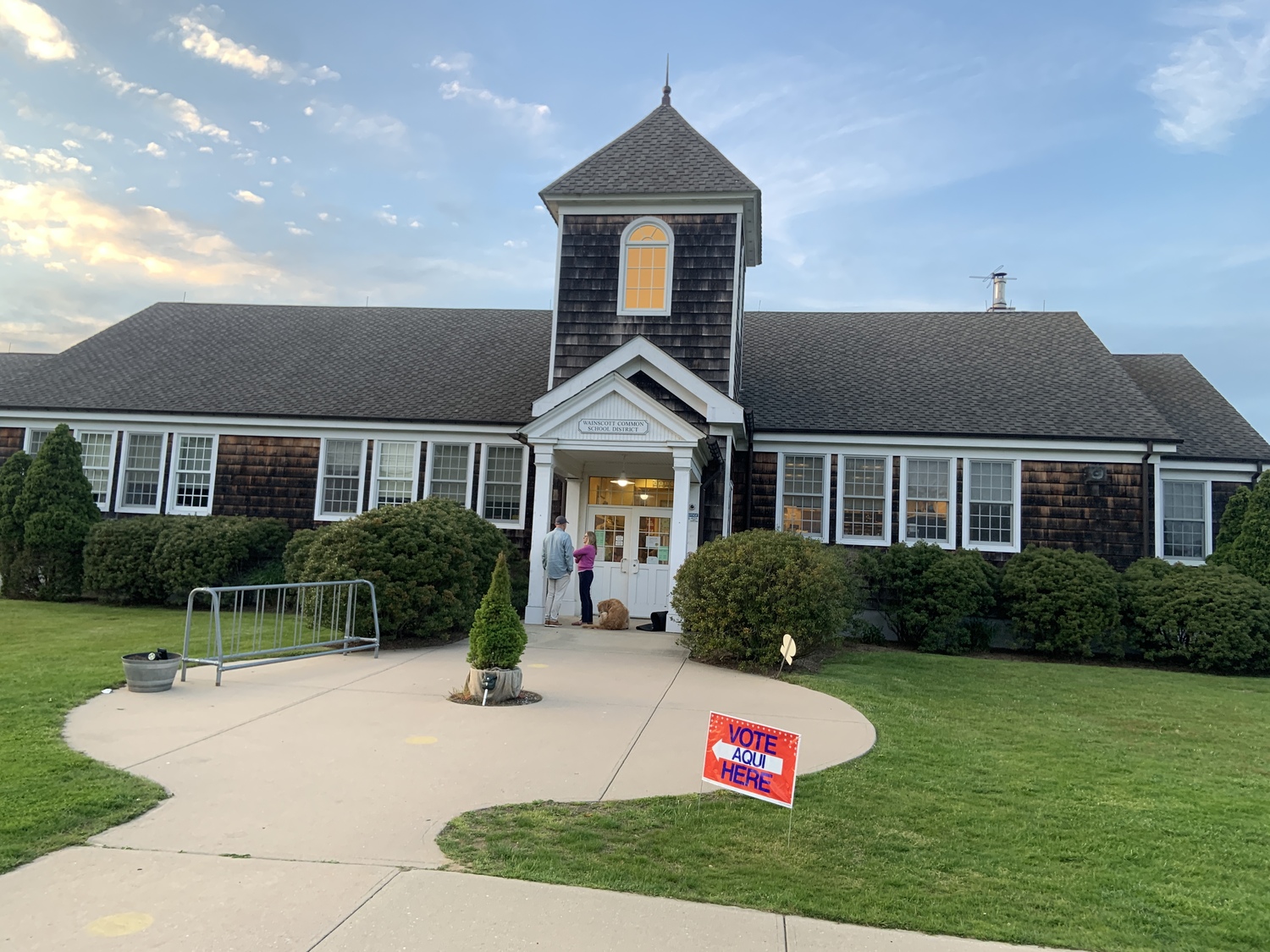
Voters in the Wainscott School District will be asked to approve a $6,144,331 budget — one that is just $17,000 less than a budget that failed by only three votes last month — in a revote on Tuesday, June 20.
Because the new budget, like the one before it, blows through the state cap on tax levy increases, a super-majority of 60 percent of votes is required for it to pass.
District officials warned of the potential for dire consequences if the budget were to be defeated a second time.
“If we don’t get 60 percent, we are going to have a financial crisis,” said School Board President David Eagan. “We are going to be in uncharted waters, and nobody knows what is going to happen.”
School Superintendent Deborah Haab said she had already spoken to State Assemblyman Fred W. Thiele Jr. to find out if the State Legislature could provide any help, but his response was not reassuring.
Wainscott ran into trouble this year when 20 new students enrolled in the district. Because the district only educates students in kindergarten through third grade in-house and tuitions out its remaining students, it was confronted by sharply higher tuition expenses, which burned a hole in the current budget.
In May, voters approved a $1 million proposition to close that shortfall, but they balked at approving a $6,161,331 budget that carried a 49 percent spending increase over last year’s $4,127,568 budget. It would have required an even larger 66 percent increase in the tax levy, from $3,,394,568 to $5,621,781.
That sharply higher budget would have accounted for the additional 20 students who arrived during the past year and provided a cushion for an addition of three more students, as well as expected increases for special education and other items.
Under state law, if a district’s second vote fails at the polls, it is required to adopt a contingency budget, which limits its tax levy to the same amount raised the previous year.
In Wainscott, where last year’s budget was already $1 million short, that would spell disaster, according to Haab.
“It’s unprecedented,” she said. “This puts us in the impossible situation of trying to fund our operations with the amount we raised last year. We are literally between a rock and a hard place.”
She said that when a larger district needs to float a contingency budget, it can typically cut extracurricular activities, such as sports and after-school enrichment programs — which Wainscott does not offer.
“It’s important to stress that the proposed budget and the increase associated with it are based on students we have here today,” she said. “It has nothing to do with any proposed affordable housing proposal.”
Haab added that 78 percent of the proposed budget would go to tuition, special education services, and transportation for the 92 students who currently attend other schools.
The $17,000 that was cut from the budget was for proposed equipment purchases, Haab said.
“This is effectively the same as a contingency budget,” said Eagan. “This is the least amount of money we are required to spend. There is no fat in this budget.”
He also stressed the need for voters to turn out to support the budget because of the 60 percent approval threshold, and reiterated what Haab had said about a proposed affordable housing development in East Hampton Town having no impact on the district’s current budget.
Reached Tuesday, Thiele said he had already met with Haab twice and had reached out to the chairman of the Assembly’s Ways and Means Committee.
“This is an extremely unique situation,” Thiele said, because the shortfall was based on tuition costs. He said it was possible the legislature could approve a special aid package or pass legislation allowing the district to do deficit financing.
Thiele said time is short. The legislature does not reconvene until January, so the district could essentially operate under the status quo until then, but it would absolutely require nearly immediate action from the legislature to orchestrate an aid plan.
“This is a unique challenge in Albany, because they are so small and are extremely property wealthy,” Thiele said. “There are no guarantees there will be a bailout. Even though this is a unique situation, it is not a slam dunk.”
Voting takes place at the schoolhouse between 2 and 8 p.m.